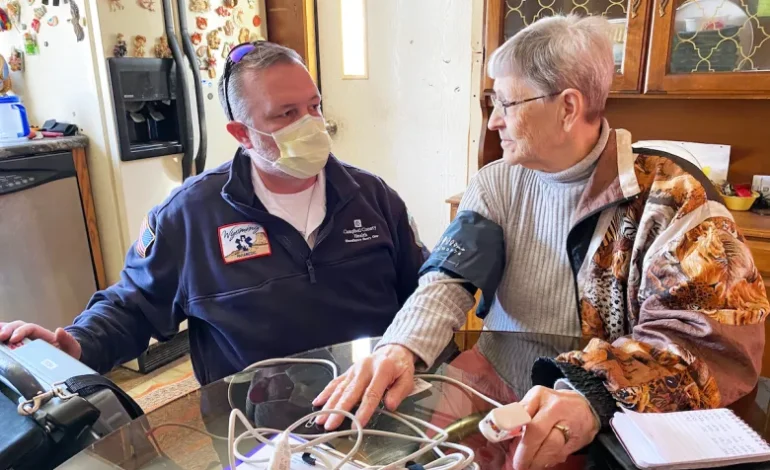Budget season feels less like math and more like roulette for Laramie’s Jessica Brauer. She buys coverage on the Affordable Care Act marketplace and, thanks to advance premium tax credits, her bill is about $325 a month. Lose those credits and it shoots to roughly $816 — a leap of about 150% that she says rivals her mortgage. She’s generally healthy and keeps insurance for the “what if,” but she’s now wondering whether she can afford that peace of mind at all, Oil City News reports.
Brauer isn’t alone. Roughly 42,000 Wyomingites use the marketplace, and the enhanced ACA tax credits that have kept premiums in check are set to expire after December unless Congress steps in. That uncertainty pairs with another shakeup: Mountain Health Co-op is pulling out of Wyoming at year’s end, shrinking the state’s marketplace to just two insurers. With open enrollment starting Nov. 1, many people won’t know their new price tags until the window opens, which is exactly the kind of limbo Brauer describes — “an odd holding pattern” where the budget plan depends on a number no one can see yet.
Advocates say the stakes are high. Healthy Wyoming warns that between 11,000 and 20,000 residents could lose coverage if the credits vanish because premiums would simply become unaffordable. For some households, the math borders on surreal: the group estimates a 60-year-old couple earning $82,000 would face about $37,422 more per year without the credits. “These tax credits have been a lifeline for folks in Wyoming,” says Healthy Wyoming Executive Director Jenn Lowe, who worries many beneficiaries don’t even realize they’re receiving help until the bill balloons. Thea Zajac of Blood Cancer United adds that rural states like Wyoming and Alaska already see higher premiums, so the jump here could be even sharper than in big metro states.
All of this lands on a system that’s already strained. Wyoming’s rural geography means long drives for specialists, persistent staffing gaps at hospitals, and fewer services like maternity care. The Big Beautiful Bill Act, passed in July, trims federal Medicaid spending by an estimated $793 billion over a decade and could mean 10.3 million fewer enrollees nationwide, according to federal budget analysts. Wyoming never expanded Medicaid, which softens some immediate hits, but the ripple effects could still be real: one economic analysis projects the state could shed nearly 200 jobs per year and lose about $140 million from its economy over five years. Medicaid currently covers about 62,000 Wyomingites; the ACA marketplace serves those who don’t qualify for Medicaid and don’t get job-based plans.
There is a potential bright spot. A new Rural Health Transformation Program could steer $500 million to $800 million to Wyoming to stabilize hospitals and providers. Supporters, including Sen. John Barrasso, say it will help keep care close to home by upgrading technology, expanding access, and retaining staff. Skeptics counter that one-off windfalls don’t fix long-term structural problems, especially if coverage erodes.
For people like Lander’s Elizabeth Aranow and her husband — both independent contractors — the uncertainty is more than a policy debate. They’re trying to guess whether monthly costs will be “hundreds, if not thousands” higher next year. That kind of unknown seeps into everything: Do they need more contracts? Should they abandon freelance life for an employer plan? Skipping insurance isn’t on the table, she says, but planning for an invisible bill is near impossible.
Advocates argue Congress could quickly defuse the crisis by extending the tax credits, ideally as part of broader budget action. Until then, Wyomingites are bracing. Prices are likely to rise; some will hunt for cheaper plans or drop coverage altogether; and folks like Brauer will wait for Nov. 1 to see whether the numbers still fit their lives — or force a rethink of everything from mortgages to medical risk.










The latest news in your social feeds
Subscribe to our social media platforms to stay tuned